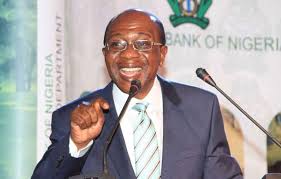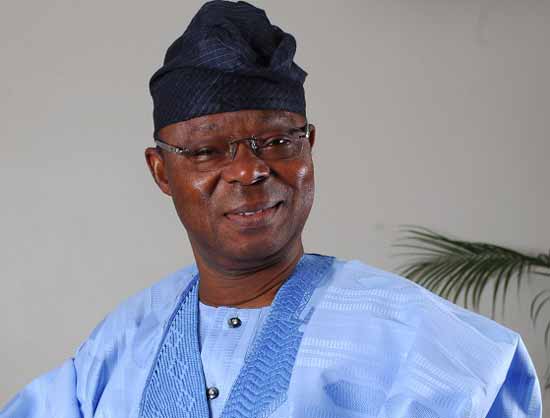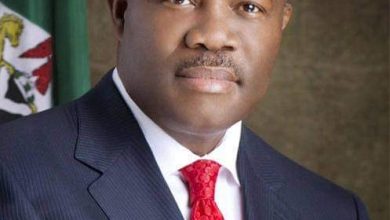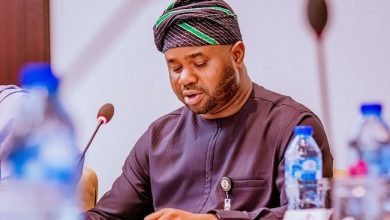Why CBN sacked board of First Bank

Issues ultimatum to First Bank of Nigeria on divesting its interest in Honeywell Flour Mills
For years, the CBN has used Adeduntan as a check against attempts by directors of First Bank to secure insider loans, a major source of conflict between the CBN and Oba Outudeko

Everything seemed well on the 27th of April 2020 after FBN Holdings completed its Annual General Meeting held at the Oriental Hotel Lekki. Following the AGM, the bank recommended a dividend payment of N16.15 billion out of a profit after tax of N65.9 billion.
The bank also announced the appointment of Mr Seni Adetu, Mrs Julier Anammah and Mr Out Hughes as non-executive directors of the bank. It also re-elected Mr Oye Hassan Odukale, Dr Adesola Adeduntan and Otunba Mrs Debola Osibogun as directors of the bank.
Unbeknownst to investors and most shareholders of the bank, while everything appeared rosy at the AGM, factions in the bank led by Chairman Dr Oba Otudeko and Chairman of the First Bank Ibukun Awosika were hatching out a plan that will change the course of history for Nigeria’s oldest bank aged 127 years.

The ill-fated plan culminated in the removal of Dr Adesola Adeduntan as MD/CEO of First Bank Ltd after just appointing him as director of the bank holding company, a position reserved for the Managing Director of the banking subsidiary.
The rubble within the bank appeared to have started after the bank’s chairman Ibukun Awosika received a letter from the Central Bank stating that the bank had not complied with regulatory directives to divest its interest in Honey Well Flour Mills “despite several reminders” to it by the Apex bank.
The CBN also stated in the letter that it was giving the bank within 48 hours to ensure Honeywell repays its obligation to it “failing which the CBN will take appropriate regulatory measures against the insider borrower and the bank.” It also instructed the bank to divest from its holdings in Bharti Airtel Nigeria Ltd and Honeywell Flour Mills within 90 days. These loans are all related to the Chairman of the bank, Oba Otudeko.
Sources with knowledge of the matter indicate the letter from the CBN did not go down well with Otudeko leading to the decision to remove Adeduntan. Common knowledge across business circles suggest Adeduntan is very chummy with one of the major shareholders of the bank who is also one of Nigeria’s richest men. He is also a major leverage for the CBN who rely on him to implement some of the initiatives approved by the CBN for the restructuring of the bank. He was also considered a checkmate for Oba Otudeko whom the CBN believes was a major reason for the spate of bad loans in the bank over the years.
For years, the CBN has used Adeduntan as a check against attempts by directors of First Bank to secure insider loans, a major source of conflict between the CBN and Oba Otudeko.
Thus, at the board meeting where Oba Otudeko and some directors of the bank finalized plans to remove Adeduntan, a board member who was not in support of his removal tipped of the CBN Governor Godwin Emefiele about the bank’s plan. Emefiele immediately put a call through to Otudeko and other members of the bank demanding that they rescind their plans. Emefiele also explained that any such decision will require prior approval of the CBN.
Oba Otudeko however declined to accede to the demands of Emefiele forcing the CBN Governor to reach out to other directors and shareholders of the banks pushing for them to get Oba Otudeko to withdraw the plans to remove Adeduntan. Emefiele also contacted several other stakeholders outside the bank but with ties to Oba Otudeko, however, most of this fell on deaf ears. While all the engagements were ongoing, the CBN issued a query to Ibukun Awosika the Chairman of First Bank demanding that she explain why the decision to remove Adeduntan was taken.
By Wednesday night, Emefiele and some of the governors of the central bank had made up their mind to sack the board of both FBN Holdings and First Bank of Nigeria Ltd. By Thursday morning, calls had been made to key stakeholders in the economy including politicians at the highest level informing them of the decision that was about to be announced. At about 2 pm in the afternoon, the CBN had finalized the selection of members of the new board of the bank. They subsequently informed the media about a press briefing for 4 pm but was later pushed back till about 6 pm as final details for the announcements were concluded.
It will appear that the CBN’s decision to remove Oba Otudeko and the other directors of the bank is mainly due to the apex bank’s regulatory forbearance and support in the corporate restructuring of the bank to protect it from failing. The CBN claimed that because it had played a major intervention role that avoided a collapse of the bank due to bad loans and poor capital adequacy rations it had a major stake in how the bank is run.
The CBN believes the bank may have collapsed were it not for its regulatory forbearance, a financial term for softening some of the strict rules that banks must comply with if they are to avoid being taken over by the CBN. Emefiele in his briefing to the media revealed that the CBN had granted “regulatory forbearances to enable the bank work out its non-performing loans through provision for write off of at least N150b from its earning for four consecutive years.” According to data from Nairalytics, FBNH had recorded a total loan impairment of over N565 billion between 2016 and 2020. About N376.4 billion, more than half the total loans impaired, were provided for in 2016 and 2017 alone.
Another major reason why the CBN moved swiftly to sack the board and reinstate Adeduntan was its inability to control Oba Otudeko and since he did not accede to the demand of Emefiele there was no way he could be allowed to keep running the bank without a check like Adeduntan. According to Emefiele, he cannot allow a Shareholder who will not subject himself to regulatory control and authority to remain a director of the bank.
The CBN has raised concerns over First Bank’s failure to comply with regulatory directives on divesting its interest in Honeywell Flour Mills.
In a letter dated 26th April 2021 and addressed to Ibukun Awosika, the Chairman of First Bank Nigeria Limited, in response to their audited International Financial Reporting Standards accounts for the financial year that ended 2020, the Central Bank of Nigeria raised its concerns that First Bank of Nigeria had not complied with regulatory directives on divesting its interest in Honeywell Flour Mills despite several reminders.
In the letter signed by the CBN’s Director of Banking Supervision, Haruna B. Mustafa, the Apex bank said:
“We further noted that after 4 years the bank is yet to perfect its lien on the shares of Mr. Oba Otudeko in FBN Holdco which collateralized the restructured credit facilities for Honeywell Flour Mills contrary to the conditions precedent for the restructuring of the company’s credit facility.”
The CBN stated that for failure to perfect the pledge and satisfy the condition for regulatory approval, such restructuring has been terminated and the credit facilities now payable immediately.
Consequently, the CBN issued an ultimatum of 48 hours that was meant to elapse on the 28th of April for Honeywell Flour Mills to fully repay its obligations to First Bank Nigeria as the failure to do so could cause the apex bank to take regulatory measures against the insider borrower and the bank.
Meanwhile the CBN in its words also “noted the untenable delay in resolving the long outstanding divestment from Bharti Airtel Nigeria Ltd in line with extant regulations of the CBN.”
Furthermore, the Apex Bank instructed First Bank Nigeria to diversify the equity investments in all non-permissible entities such as Honeywell Flour Mills and Bharti Airtel Nigeria Limited within 90 days.
Prior to Thursday’s trading session, the Tier 1 bank was trading at N7.40 within a striking distance to its 52 weeks high of N9 with a market capitalization standing at N265.6 billion; and Honeywell Flour Mills was priced at N1.33 with a market value of N10.55 billion.






